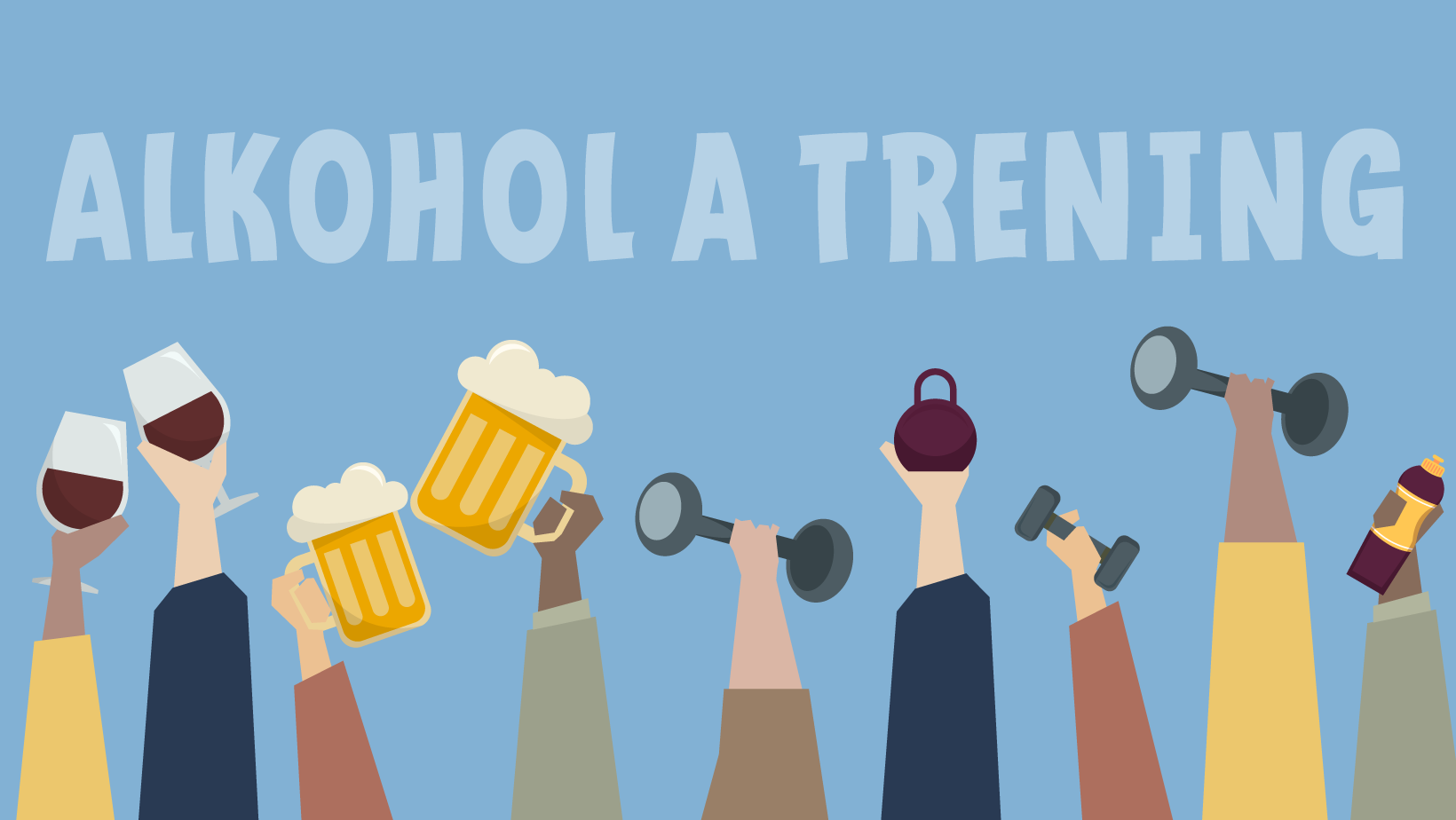
Some people feel guilty about drinking after exercising, believing that alcohol ruins their workout results. Others argue that alcohol helps with muscle soreness. Here, we’ll explore how alcohol really affects your health and fitness.
Alcohol is one of the most common substances worldwide, available in countless forms. Everyone has their favorite, but it’s no secret that alcohol isn’t particularly healthy. The best proof is the hangover. Most people feel terrible the day after consuming a large amount of alcohol, experiencing symptoms like dizziness or digestive issues. This is because alcohol is a toxin.
When we talk about alcohol, we primarily mean ethanol. This psychoactive substance has only negative effects. However, there’s no need to panic, as the lethal dose of ethanol is very high—over 4‰ in the blood, equivalent to 320 grams for an 80 kg person. This equals 16 beers or a liter of vodka, which is challenging to consume. Nonetheless, smaller doses of ethanol are still harmful to health. In terms of strength training, alcohol disrupts neuromuscular connections, negatively impacting workout results.
The liver metabolizes alcohol while performing other critical functions like digesting carbohydrates and proteins, storing vitamins such as A, D, iron, and B12, and detoxifying the body. Excessive alcohol consumption overwhelms the liver, leading to fat accumulation and impaired function, potentially causing cirrhosis. Moreover, excessive alcohol intake:
High-proof drinks increase the risk of dehydration, which is the most significant issue with drinking alcohol after a workout. Alcohol acts as a diuretic, similar to caffeine. Instead of replenishing electrolytes lost during exercise, we lose more. Rehydrating and replenishing electrolytes post-workout is crucial. During exercise, we sweat to cool down, losing valuable electrolytes.
Even after strength training, beer isn’t a good option. Beer is often compared to isotonic drinks, but this is a myth! Beer dehydrates rather than hydrates the body. Alcohol inhibits vasopressin, a hormone regulating electrolyte balance. Therefore, the only benefit of drinking beer post-workout is calorie replenishment.
Interestingly, non-alcoholic beer meets the standards of an isotonic drink. It contains B vitamins and minerals like magnesium. Non-alcoholic beer is calorically similar to popular isotonic drinks, making it a good option for replenishing electrolytes after strength training.
Physical exertion causes metabolic changes, and various hormones (e.g., adrenaline) temporarily take a back seat. Post-workout, the body must address these changes. Alcohol consumed post-workout can exacerbate these disruptions, hindering recovery processes. Drinking alcohol post-workout slows the return to homeostasis and muscle building.
Consuming alcohol post-workout:
Training under the influence of alcohol is dangerous and ineffective. Alcohol delays reaction time and impairs balance, increasing the risk of accidents, especially with heavy weights. It also disrupts neuromuscular connections, reducing workout efficiency. Therefore, exercising after drinking is not only unsafe but also counterproductive.
Excessive alcohol negatively impacts your physique. Alcohol can reduce protein synthesis by 15-20%, lasting up to 24 hours post-consumption, hindering muscle mass building and recovery. Additionally, alcohol lowers testosterone levels by up to 20% and increases testosterone’s conversion to estrogen, adversely affecting muscle development.
Alcohol can be consumed immediately after a workout, but it’s not advisable. To minimize negative effects, first, replenish electrolytes with a drink like water with lemon juice and a pinch of Himalayan salt. Then, eat a nutritious meal with adequate proteins, carbohydrates, and fats. Afterward, rest to allow better recovery. Ideally, wait at least three hours before drinking alcohol, though it’s best to avoid it entirely.
Consuming alcohol immediately post-workout is a bad habit that delays recovery processes. Instead of digesting and absorbing carbohydrates and proteins, the body focuses on metabolizing alcohol, slowing muscle repair. Here are some tips for more responsible alcohol consumption post-workout:
If you can’t eat post-workout, opt for light snacks while drinking to slow alcohol absorption. Avoid typical bar food, as it’s often fatty and slows metabolism. In summary, drinking alcohol post-workout isn’t advisable. If you plan to drink, prioritize recovery first. If pressed for time, it’s better to skip the workout. I strongly discourage drinking alcohol after the gym.